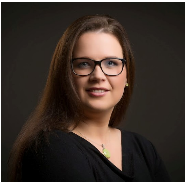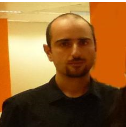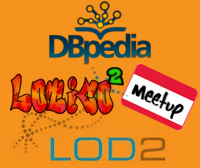
Session, THU 13:30 - 15:00
Semantic Information Management I
Don’t search – Be provided – Corporate Connected Knowledge
Corporate knowledge no longer consists only of text documents and presentation slides. Content management systems have been enhanced by social components and online services to support cooperative work and integration within the corporate intranet. In most cases, a more sophisticated work environment results in more information that has to be managed and reviewed by an employee. The information flood is manifold and consists of project reports, presentation slides, product descriptions, calendar appointments, qualification work flows etc.
To meet the requirements of a future-proof working place, a content management has to be able to connect knowledge and provide relevant information according to an employee’s context. Additionally to the challenge of integration, the information is often distributed over multiple sources and it has to be aggregated.
In this talk, we want to present an app-based approach that aggregates information from different sources, extracts content information and uses a knowledge graph to connect corporate content. The graph is then used to provide context-based recommendations. These recommendations are based on various dimensions: time, content-based relevance, location, etc. The user context is defined by several global concepts, but also consists of components that are very specific for the respective business division. Thereby, this talks presents several recommendation models to support specific needs of a company’s employees.
About
- Business Software Solutions GmbH is a IT Services and Product company, founded in 1999 and with offices in Eisenach, Dresden, and Mannheim. At the moment B-S-S employs 40 consultants and developers.
- The main business areas are consulting, development and support. Our core business is IT service are based on Data Mining, Enterprise Search, information-driven apps and Big Data.
- Our approach is to provide a unified, holistic and context-aware view to all relevant information. By enhancing your information management, considerable benefits can be generated such as time savings, improvement of productivity or a better basis for decision-making.
- B-S-S is a strategic partner of Microsoft and PTSP for SharePoint and O365.
Nadine Steinmetz
Nadine Steinmetz (neé Ludwig) graduated from Technische Universität Ilmenau with a degree in Computer Science in 2005. In her diploma thesis she described the integration of remote laboratories in Learning Content Management Systems via SCORM. From June 2006 until April 2010 Nadine Steinmetz was part of the MuLF Center at Berlin Institute of Technology as a research assistant where she conducted research on cooperative knowledge spaces and the integration of semantic web technologies to improve the navigation through room-based e-learning platforms. In May 2010 she joined the research group on Semantic Technologies at the Hasso Plattner Institute for Software Systems Engineering in Potsdam. Her research was focused on the issue of semantic analysis of multimedia documents. Since May 2014 she holds a PhD degree from the University of Potsdam. Her PhD thesis entitled “Context-Aware Semantic Analysis of Video Metadata” covers the fields of semantic analysis based on contextual descriptions of metadata taking into account multiple characteristics, such as reliability, ambiguity, text type etc. Nadine Steinmetz now works as a consultant for web technologies at the B-S-S Business Software Solutions GmbH and is mainly focused on the field of connected knowledge and graph-based recommendations of corporate content.
Performing Named Entity Resolution in Industrial Application Scenarios- Experiences and Lessons Learned
Named Entity Resolution (NER) is an information extraction task that involves detecting mentions of named entities (e.g. people, organizations or locations) within texts and mapping them to their corresponding entities in a given knowledge source. Systems and frameworks for performing NER have been developed both by the academia and the industry with different features and capabilities.
The goal of this presentation is to describe our experiences from implementing NER solutions in a number of real-world application scenarios (derived from our business clients and partners), share some key lessons we learned with respect to their applicability and effectiveness and describe how we incorporated these lessons into an in-house developed semantic annotation system, called Knowledge Tagger. Furthermore, we will outline some research and technological directions and challenges for the further improvement of such systems within organizational settings.
About
- Intelligent Software Components (iSOCO), S.A. is a private company founded in 1999 as a spin-off of the Spanish Scientific Research Council (CSIC/IIIA) in Barcelona.
- Currently, iSOCO employs around 70 persons in offices in Barcelona, Madrid, Valencia, and Pamplona. In order to ensure the proper transfer of the research to the market, iSOCOLab was created in January 2001, as the Research department with three main objectives: maintain the technological level of the company, develop new prototypes to approach the market through new products and ensure the application of new technologies to business processes.
- iSOCO has ample experience in international R&D projects, including EU funded, and is successful in bringing research results to the market.
- Based on the results of FP5, FP6, and FP7 projects in the area of Semantic Web (IBROW, Esperonto, SWWS, Simweb, DIP, SEKT, HOPS, Ontogrid, NeOn, SUPER, ACTIVE, SOA4ALL, GLOCAL), it has renewed its service offering being the first company in Spain to offer Semantic Web technology solutions.
Panos Alexopoulos
Dr. Panos Alexopoulos is Semantic Applications Research Manager at iSOCO S.A., planning, conducting and managing R&D activities in the full spectrum of Semantic Information Management. Prior to joining iSOCO he had been working as a semantic solutions architect and ontologist for IMC Technologies S.A. where, among others, he developed Knowledge Accelerator, a commercial semantic information access platform. Panos holds a PhD in Knowledge Engineering and Management from National Technical University of Athens (2012), an MSc in Advanced Computing from Imperial College London (2005) and a Diploma in Electrical & Computer Engineering from National Technical University of Athens (2004). He has published more than 40 articles at international conferences, journals and books and has served on the editorial boards and program committees of a number of scientific publications
Case Studies in Search and Semantics: Real-world Applications of Data, Documents, and Triples Working Together
The power of a NoSQL database is in its ability to handle all kinds of information, in any format, from any source, and make that combined information space available to users to discover, understand, and make decisions.
In this talk we'll describe real-world case studies where users leverage structured data, documents (XML), and triples (RDF) in combination. We'll start with the BBC, who power their record-breaking BBC Sports web site using data + documents + facts/relationships, then describe groundbreaking work in Healthcare, Media, Financial Services, and Intelligence.
To wrap up, we'll look into the future of Semantic Search Applications, and see how close we are to the world of "Minority Report", where all information is available in context to explore, navigate, and customize.
-
Learn how 3 different data paradigms - structured data, documents, RDF triples - can work in combination
-
See real-world examples of the power of Semantic Search in context
-
Seek into the future of Semantic Search Applications
About MarkLogic
For more than a decade, MarkLogic has delivered a powerful, agile and trusted Enterprise NoSQL database platform that enables organizations to turn all data into valuable and actionable information. Organizations around the world rely on MarkLogic’s enterprise-grade technology to power the new generation of information applications. MarkLogic is headquartered in Silicon Valley with offices in Washington D.C., New York, London, Frankfurt, Utrecht, and Tokyo. For more information, please visit www.marklogic.com.
Stephen Buxton
Stephen Buxton is the Senior Director of Product Management for Search and Semantics at MarkLogic, where he has been a member of the Products team since 2005.
Stephen is the co-author of “Querying XML” and a contributor to “Database Design”, a book in Morgan Kaufman’s “Know It All” series.
Before joining MarkLogic, Stephen was Director of Product Management for Text and XML at Oracle Corporation.
POSTER
Processing RDF Data in UnifiedViews
UnifiedViews is an Extract-Transform-Load (ETL) framework that allows users - publishers, consumers, or analysts - to define, execute, monitor, debug, schedule, and share RDF data processing tasks. The data processing tasks may use custom plugins created by users. UnifiedViews differs from other ETL frameworks by natively supporting RDF data and ontologies. The practical demonstration of UnifiedViews at the conference will (1) clearly demonstrate how UnifiedViews helps RDF/Linked Data users with RDF data processing (2) and show the real instance of UnifiedViews with tens of data processing tasks and DPUs motivated by real data processing use cases.
Tomáš Knap
Faculty of Mathematics and Physics, Charles University in Prague, Czech Republic








